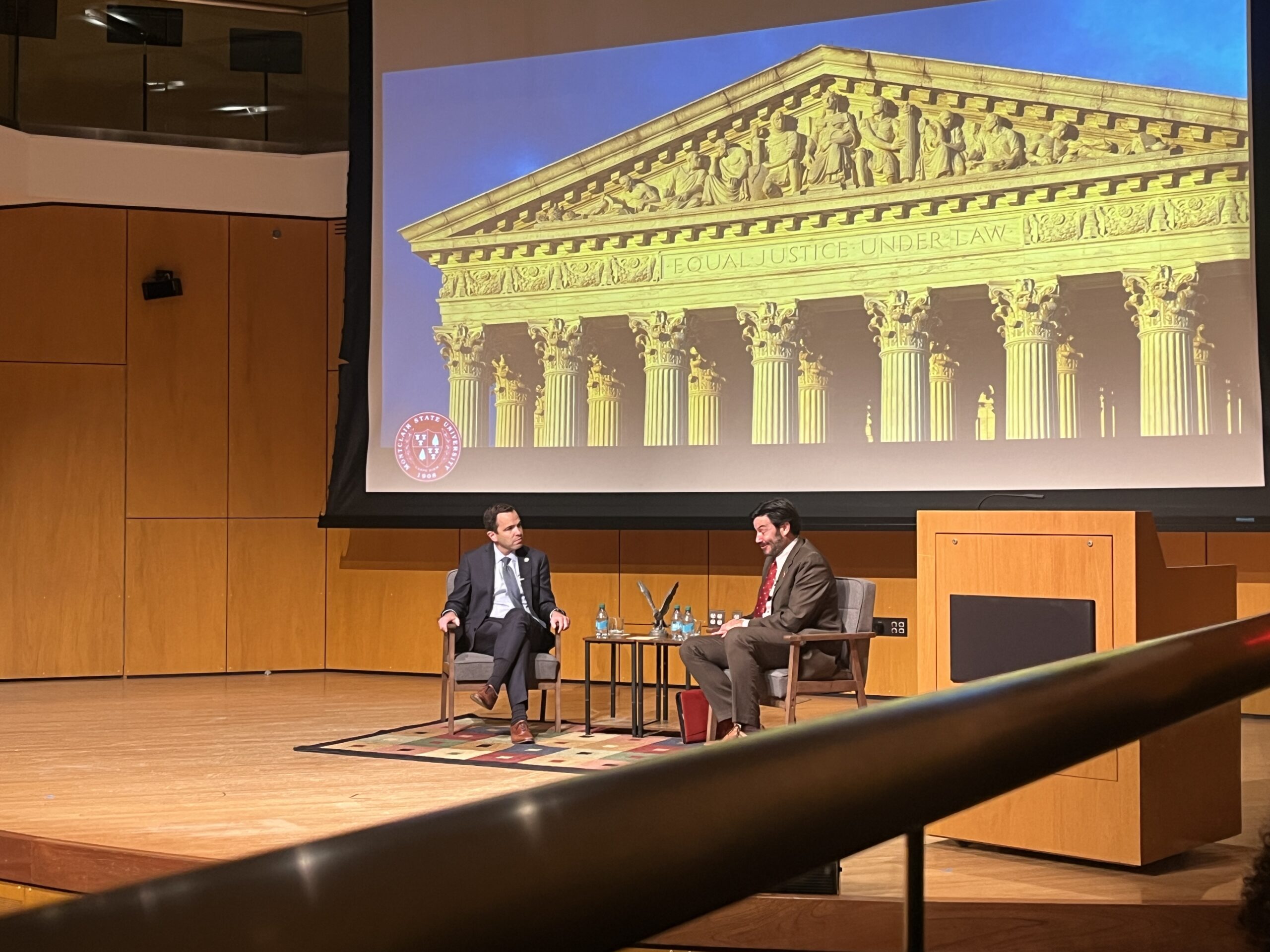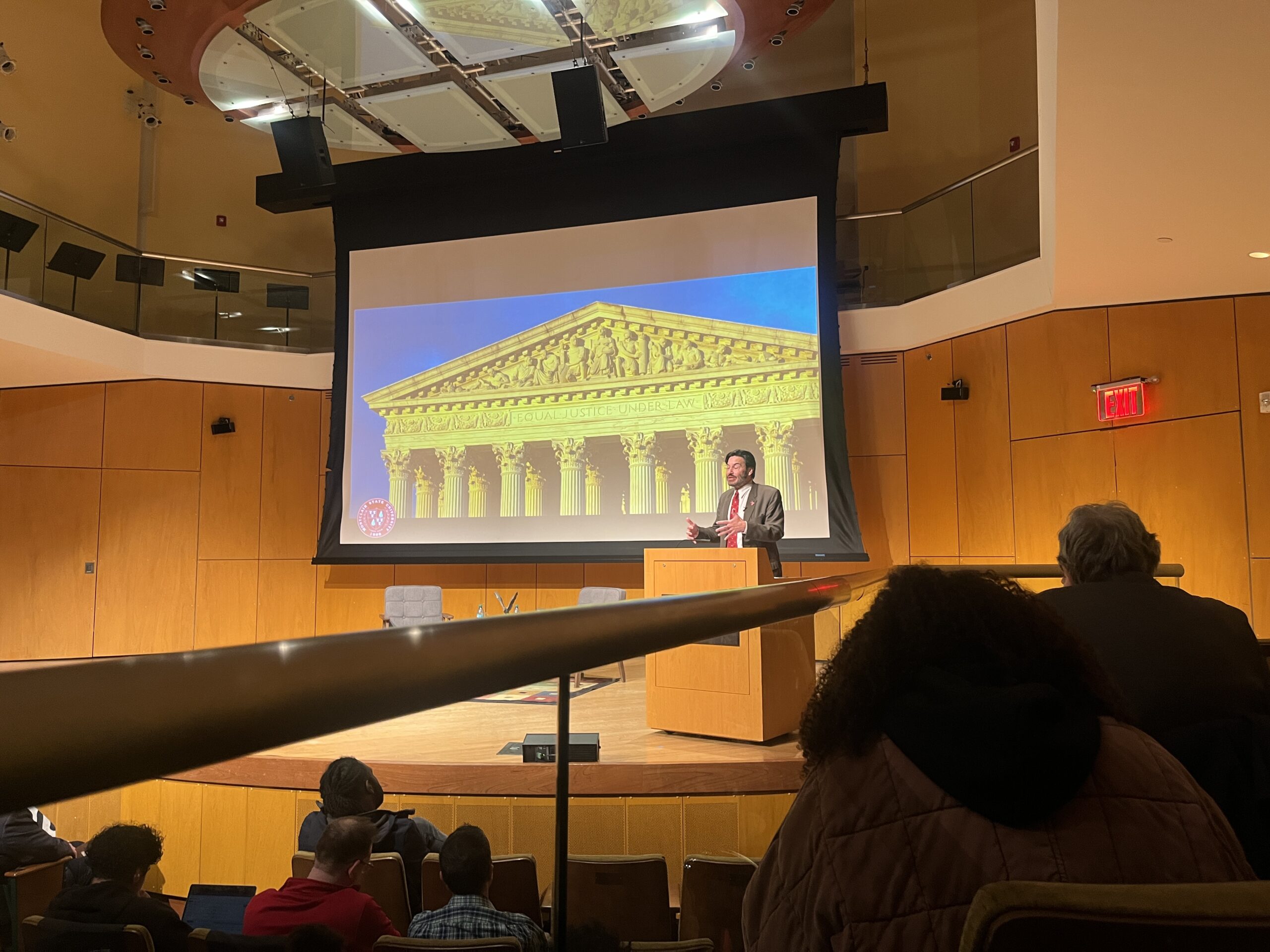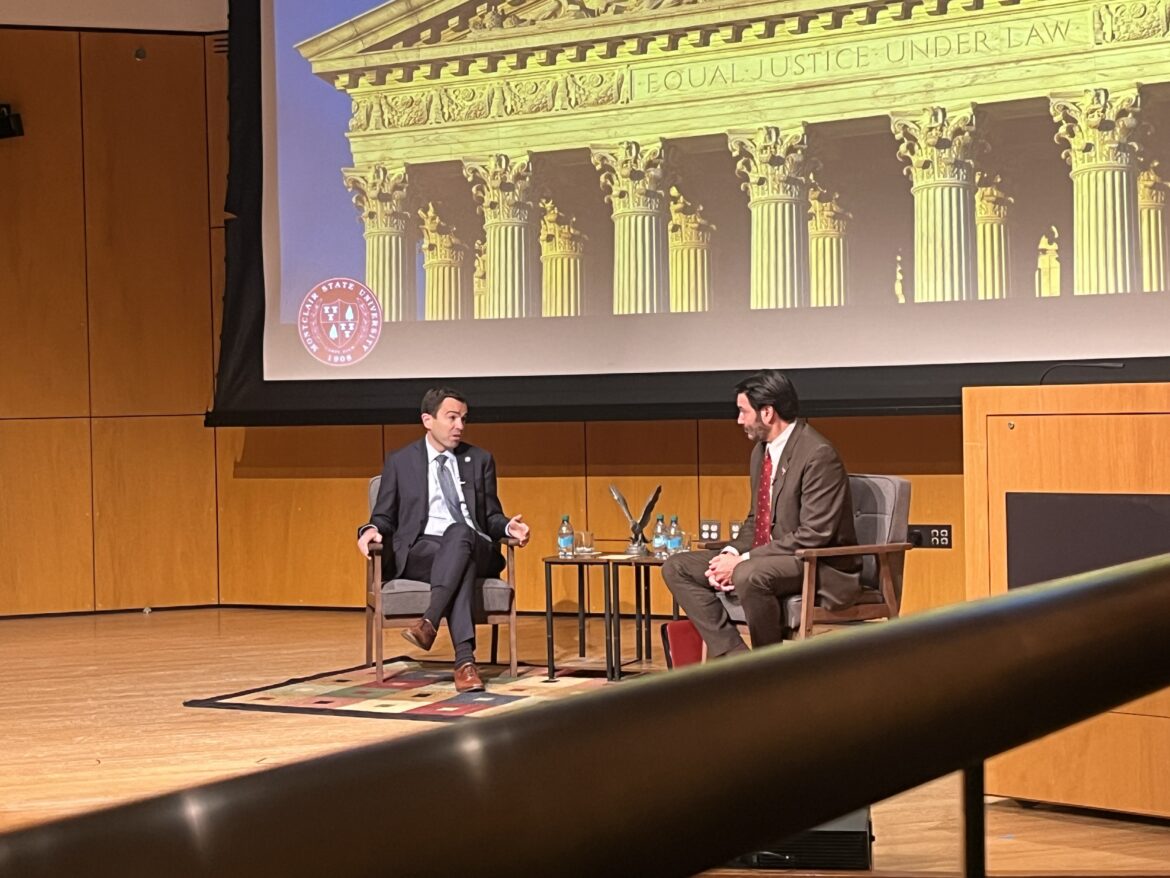On Thursday, Nov. 6, Montclair State University President Jonathan Koppell spoke at the Leshowitz Hall in John J. Cali School of Music, where he discussed the importance of due process and the rule of law. The lecture was a part of Koppell’s lecture series, “The American Experiment: 250 Years and Beyond.”
Koppell explained the rule of law, which is the idea that laws govern a nation rather than people. Koppell clarifies concepts on democracy, the republic and federalism during his lecture, emphasizing that “in order for the rule of law to exist, there has to be a process.”
Within the rule-of-law system, due process is seen critical to prevent laws from becoming a tool of power imbalances. Koppell argued that without due process, the rule of law could be reduced to “an alternative language for power,” justifying outcomes driven by inequality rather than justice.
Koppell’s lecture highlights how abstract pre-election debates about the rule of law became concrete through specific actions such as executive orders. Koppell referenced Andrew Jackson’s famous quote, “The chief justice has made his decision. Let him enforce it,” illustrating rare but significant instances of defiance towards judicial power.
Koppell also discussed the Magna Carta, specifically Clause 39, which states, “no free man shall be arrested or imprisoned, or dispossessed, or outlawed or exiled or in any way victimized.” This established a foundational principle.
Koppell explained how Clause 39 links historical origins to modern due process, showing continuity in the need for structured legal procedures to preserve the rule of law.
One of Koppell’s main objectives of the lecture is to clarify that legal institutions are neither inherently stable nor universally respected. He highlights the Fourth through Eighth Amendments for their direct relevance to trials and due process, emphasizing their collective purpose of protecting individual rights during judicial proceedings.

Montclair State University president Jonathan Koppell converses with New Jersey Attorney General Matthew J. Platkin. Sabine Louis | The Montclarion
In the second half of the lecture, Koppell brought out Attorney General Matthew Platkin for a discussion on the rule of law in American democracy.
Platkin emphasized the importance of the rule of law by addressing instances where President Donald Trump has overstepped constitutional amendment processes.
Platkin explained that the first night of the administration, a 14th Amendment executive order presented a concrete challenge to the rule of law. Unlike most United States Attorney General, who have limited to no criminal authority, Platkin has complete criminal authority.
Criminal authority refers to the power of jurisdiction given to law enforcement or judicial bodies to deal with crimes.
As of the prosecutor system, Platkin states that there are no elected prosecutors in New Jersey. Instead, County Prosecutors serve 5-year protected terms and report directly to the attorney general.
Koppell asked Platkin whether this discretionary power “implicates the rule of law.” Platkin explained the challenges of selective prosecution with the rule of law and how it involves the attorney general and county prosecutors who prioritize which types of crimes to prosecute.

The next lecture of Koppell's series, "E Pluribus Unum," will take place on Dec. 1 in the CCOM Presentation Hall. Sabine Louis | The Montclarion
Following this discussion, Platkin states that “the most common powerful tool the government has is the power to incarcerate people.” This highlights that the rule of law is essential because the government’s power to imprison people is very serious.
After the discussion between Koppell and Platkin, the two open up the floor to questions from the audience. The lecture was attended by a mixture of students, faculty, friends and family.
The next lecture of Koppell’s series, “E Pluribus Unum,” will take place on Dec. 1 in the College of Communication and Media (CCOM) Presentation Hall.



